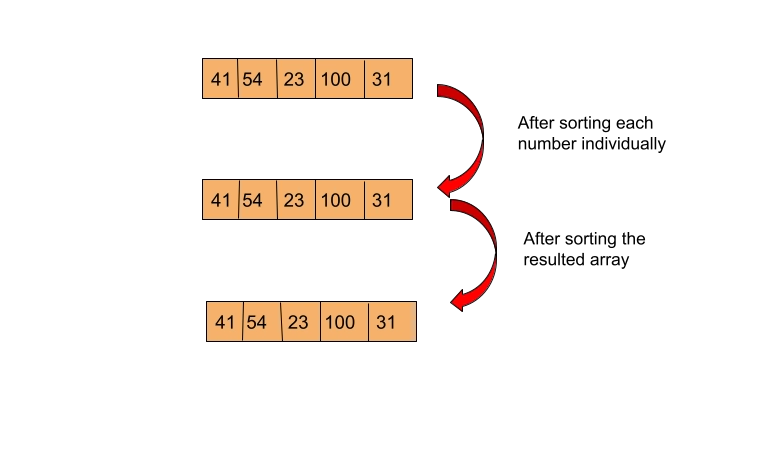Introduction
Sorting means ordering of given elements based on their priority to that context. By default, it means increasing order. In computer science, Sorting algorithms are very commonly used to solve DSA problems and implement algorithms. Sorting a number is also an interesting concept. We will see how both of these concepts will be used to solve this problem.
Problem statement
You are given an array of integers. First, sort the integers individually and then sort the whole array.
Input:
arr[ ]={41, 54, 23, 100, 31};
Output:
ans[ ]={1, 13, 14, 23, 45}
Explanation
After sorting digits of the integers of the given array, resulted array will be
{14, 45, 23, 1, 13}. Now if we sort the resulting array, it will return {1, 13, 14, 23, 45}.

Note: Please try to solve the problem first and then see the solution below.




